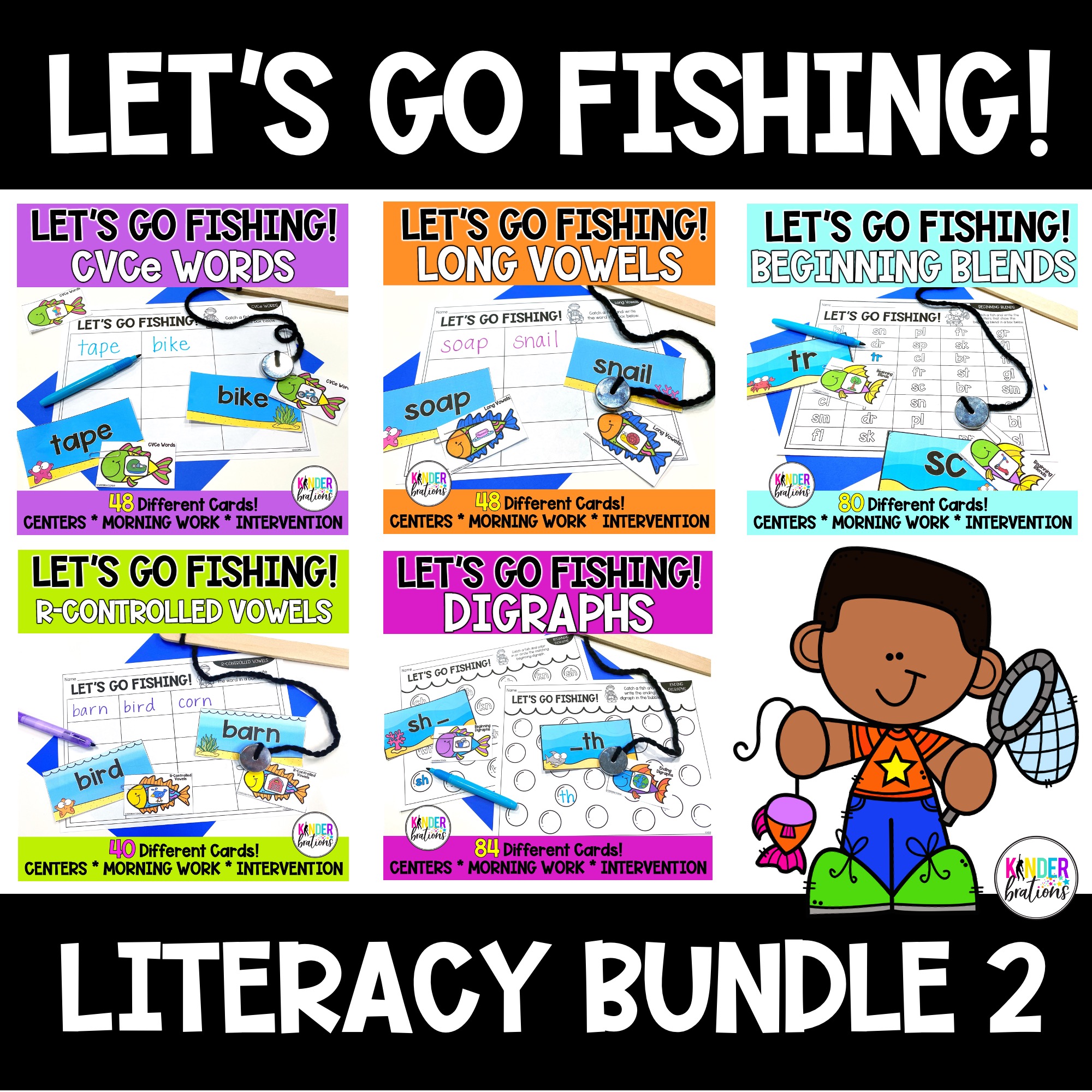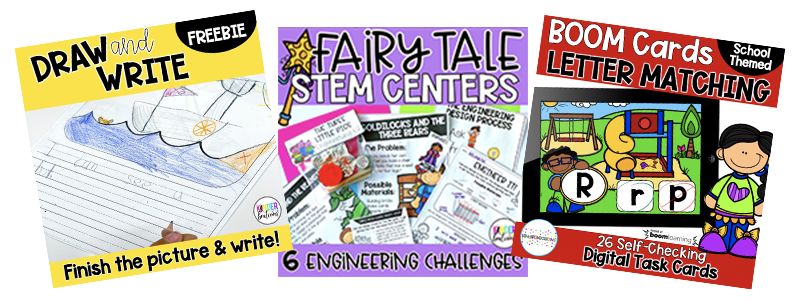Description
Engaging and hands-on CVCe words, long vowels, beginning blends, beginning and ending digraphs, and r-controlled vowels practice! Your students will love catching fish, matching up the pictures and letters/words (fish and oceans) and using the recording sheets to write down all of the sounds or words they catch! These are great for whole-class teaching, small group instruction, literacy centers, independent practice, morning work, or intervention.
What’s Included:
300 pictures (fish) and 300 corresponding sounds or words (oceans) in color OR black and white that can be matched together to practice important and crucial beginning reading skills, decoding CVCe words, long vowels, beginning blends, beginning and ending digraphs, and r-controlled vowels . This fishing game can be used for many different purposes and in a variety of ways.
Why use Literacy Fishing?
Research supports how important it is for beginning readers to practice letter sounds and decoding. Intentional, frequent, and focused opportunities to practice over an extended time (deliberate practice) facilitates automaticity with these skills. Since research also shows that learners are more motivated to do an activity that is fun and novel, Literacy Fishing is an activity that meets that criteria. Literacy Fishing combines the motivation of hands-on, engaging activities and deliberate practice with the goal of helping students gain automaticity in sounds and decoding words, and does it in a way that is both fun and motivational.
How to Use:
Spread the fish out face down on the floor or a table. The students can use their poles to “catch” a fish. To make it more fun, put the fish in a small plastic swimming pool! Students will identify the sound/s or word of the picture on a fish, find the matching letters or word on an ocean scene, and put the fish in the ocean. They can then write the letters, sounds, or words on the recording sheet (optional). Go over any of the picture “names” on the fish that your students may have difficulty identifying.
We purchased magnetic fishing poles from Lakeshore Learning; however, you can also make your own poles with wooden dowels, pencils, chopsticks, or anything that would make sturdy “fishing poles.” Tie string on the end of each “pole.” Then, attach a magnet on the end of each string. Put a paperclip or brad on each fish. This can also be played without using magnetic fishing poles. Simply place the fish in a sensory bin (filled with blue shredded paper, water beads, etc.) and students can pull a fish from the “ocean”.
You May Also Be Interested In:
Literacy and Math Locks BUNDLE
Consonant and Vowel Picture Sorts BUNDLE
If you have any questions, please e-mail us at [email protected]. Be sure to click HERE to follow our store for new products and freebies! We will be adding additional fishing games for a variety of math and literacy skills!
Thank you,
Linda Ekstrom and Michelle Woods


Reviews
There are no reviews yet.